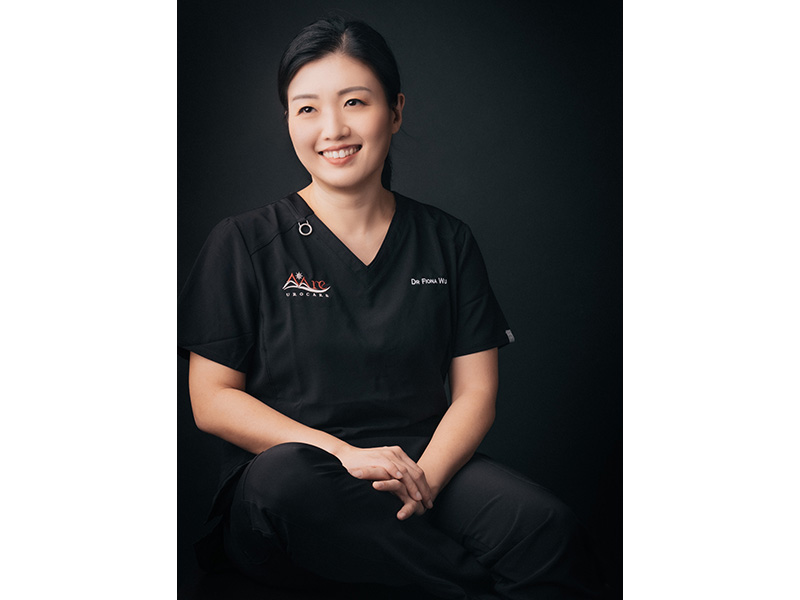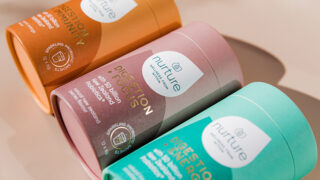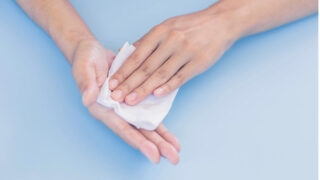Breaking into a male-dominated field of medicine was just the beginning for DR FIONA WU, consultant urologist and medical director of Aare Urocare. Now with her own practice, she’s on a mission to set the record straight about the pelvic floor and bladder problems like urinary incontinence keeping many patients from living their best lives. Here’s why this urologist in Singapore is a woman on our radar, and what keeps her inspired!
Breaking barriers as a female urologist in Singapore
Traditionally dominated by male doctors, urology is very often associated with male conditions, with prostate problems coming to mind for many people. But, while urologists do see a fair share of male genitalia, there are a whole lot of female patients with all kinds of urological conditions – from kidney stones and urinary tract infections to pelvic pain and urinary incontinence. Of course, many of these conditions can be embarrassing to discuss, particularly with a doctor of the opposite sex. This perceived awkwardness can lead to delays in both diagnoses and treatments.
This is one of the main reasons Dr Wu got into urology in the first place. And, she’s glad to see the field evolve over time, now with a growing number of female urologists in Singapore to complement the growing population of female patients.

Dr Wu says she was also drawn to the wide range of conditions within the field of urology, and greatly appreciates the fulfilment of being able to help patients as a urologist in Singapore.
“Urology is an inclusive specialty that treats all kinds of urinary issues, from cancer to functional voiding disorders to circumcision,” she says. “I also love the fact that patients get well relatively fast in urology. I enjoy helping them to get back to a fulfilling, active lifestyle without compromising their quality of life.”
This passion for helping patients goes beyond her practice walls, too. Dr Wu is an active member of the Singapore Continence Society (SFCS), which is a charitable organisation that helps with the education of the public and health workers on urinary issues.
“I love being able to help patients in little ways, even if it’s a non-urological issue,” she says. “Everyone needs a listening ear or helping hand sometimes when things are not going right.”
Treating urinary incontinence and other conditions
After 15 years of public service working in the urology department at National University Hospital, Alexandra Hospital and Ng Teng Fong General Hospital, Dr Wu decided to open her own private practice, Aare Urocare, at Gleneagles Hospital. Open since last year, the practice provides a range of screening and diagnostic services, as well as treatment solutions for bladder, pelvic floor, kidney and prostate conditions.
Trading taboos for treatment options
Running her own practice has allowed her the opportunity to focus on her subspecialties. These include female, functional and reconstructive urology, and treating urinary incontinence (UI) with minimally invasive methods.
In fact, Dr Wu built Aare Urocare as a “one-stop incontinence centre”, as she is a firm advocate that bladder conditions are very treatable under the right care. This is especially important, she says, in dispelling the many mistruths that linger around such bladder conditions, which are so very common but so rarely talked about.
For example, it’s a common misconception, especially for women, that stress urinary incontinence (SUI) – incontinence linked to stress because of increased pressure on the bladder – is inevitable after childbirth or as they age, and something they just have to deal with.

“We see our body’s eventual inability to hold urine as something as ‘natural’ as our skin sagging or our bones getting weaker. However, that’s not true. Just because something is common doesn’t mean it should be seen as ‘normal’.”
What’s more, bladder conditions can be too taboo a subject for some people to take care of.
“Often, people don’t speak openly about the condition. This is probably because it’s associated with infancy or the loss of control and old age, which, understandably, can be embarrassing. This can take a great toll on someone’s life and, in severe cases, can negatively impact self-esteem and affect their ability to carry out daily activities.”
Minimally invasive techniques
The good news is that urinary conditions are very treatable, says Dr Wu. “When you get down to the root of what’s causing your incontinence, it’s very likely that there’s a treatment for you that can manage these symptoms, and you can live worry-free. This is exactly why I started Aare Urocare – to advocate that urinary conditions are very treatable under the right care, and don’t necessarily require surgery.”

One such technique is the FOTONA Laser procedure, which uses thermal energy to remodel vaginal wall tissue and restore normal continence function. Dr Wu has seen positive outcomes from this procedure, which she says is pain-free. It requires two to three 20-to-30- minute sessions done at monthly intervals. Progressive technology like this has made the management of certain conditions easier, she says.
“We have progressed rapidly in the last few decades, with advancements in both diagnostic and therapeutic management. It’s truly an exciting, evolving field in medicine.”
When to see a urologist
Dr Wu advises anyone with urinary issues to see a urologist in Singapore for a professional diagnosis. “Your UI symptoms may not be caused by a pelvic floor dysfunction or weak pelvic floor. The inability to hold urine may also be caused by anything from an overactive bladder to an infection. This makes a proper diagnosis important in finding the right treatment for you.”
What’s more, she says that men can suffer from urinary incontinence, too. “It just appears to be much more prevalent in women because they tend to experience more symptoms. This discomfort increases their likelihood of reporting their symptoms and having their condition checked,” she says.
In addition to the involuntary leakage of urine, some of the key symptoms of UI include:
- an increased urge to urinate, even when the bladder is not full;
- urinating more often than usual;
- pain while passing urine;
- bed-wetting during sleep;
- waking up two or more times during the night to urinate; and
- constant leakage of urine.
“If you experience such symptoms or any other urinary issues, don’t keep it to yourself – we’re here to help you! It’s more common than you think and can be treated. You don’t have to chalk it up as a part of ageing.”
Dr Fiona Wu, Aare Urocare
#10-06 Gleneagles Medical Centre
6252 4681 | aareurology.sg
This article first appeared in the March 2023 edition of Expat Living. You can purchase the latest issue or subscribe, so you never miss a copy!
To make the most of living in Singapore, read our latest City Guide here for free!





